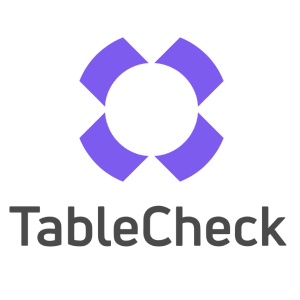Updated November 24, 2025
TypeScript in Japan - Language Guide
The open-source programming language developed by Microsoft, TypeScript, took the software development scene by storm upon making its debut in 2012.
Since then, the multi-paradigm language’s approval rating has been through the roof. You can even find surveys claiming TypeScript is currently the number one fastest-growing language in the world.
So, how does the object-oriented programming language’s popularity fare in Japan?
In this post, I’ll explain how the country’s IT industry most commonly utilizes the language and how popular it is in Japan, all backed up with numbers. I’ll also talk about the economic aspect of working as a TypeScript developer here and how you can find a job as one in Japan.
So, buckle up, and let’s see how TypeScript ranks against other popular programming languages in Japan.
In this article: 📝
The Popularity of TypeScript Programming Language in Japan
Since its initial release in 2012, TypeScript has been spreading fairly steadily worldwide, despite its popularity somewhat lagging in the US market upon its release for a while.
On the other hand, the language has been gaining popularity very quickly in Japan. According to the data we’ve collected at Japan Dev over the years, TypeScript ranks as the 6th most popular programming language in the country today.
Take a look at our table below to see how it ranks compared to other languages:
Popularity Rank |
Programming Language |
Median Salary |
#1 |
Python |
¥9.8 million |
#2 |
Java |
¥8.6 million |
#3 |
Go |
¥10.3 million |
#4 |
Javascript |
¥8.6 million |
#5 |
C++ |
¥9.3 million |
#6 |
Typescript |
¥9 million |
#7 |
Kotlin |
¥9.1 million |
#8 |
Ruby |
¥9.2 million |
#9 |
PHP |
¥8.7 million |
#10 |
Swift |
¥8.7 million |
#11 |
React |
¥9 million |
#12 |
Node.js |
¥8.5 million |
#13 |
R |
¥10.1 million |
#14 |
Scala |
¥10.86 million |
#15 |
Vue.js |
¥8.7 million |
#16 |
Objective-C |
¥7.2 million |
#17 |
Rust |
¥8.5 million |
This list was made according to TypeScript’s popularity among the job listings we feature on the Japan Dev job board. So, based on real-life job listings, TypeScript is the sixth most sought-after language.

TypeScript’s Use Cases: How Is TypeScript Used in Japan?
As it originated from certain shortcomings of JavaScript, TypeScript was quickly embraced by front-end developers all over the world, and the same goes for Japan’s tech industry.
Today, TypeScript has become the go-to replacement for JavaScript and is popularly used for building front-end web applications. In addition, you’ll see it frequently used in combination with popular frameworks such as React.
Other than the extensive front-end use TypeScript gets in Japan, it’s also commonly used for server-side or backend applications. The language is commonly used by companies developing mobile applications, often in combination with the framework React Native.
TypeScript Salaries in Japan: The Financial Side of Being a TypeScript Developer
The data we collected at Japan Dev didn’t just allow us to rank the programming languages according to their popularity in job listings, but it also provided us with crucial information about the salary situation.
So, we’ve crunched the numbers and concluded that TypeScript jobs on the Japan Dev job board pay an annual median salary of ¥9 million.
If you scroll through our list and check the median salaries for other languages, you’ll see that this number is certainly above average, as it’s at the higher end of the salary scale.
In fact, despite being in the 6th spot, it still pays more on average to be a TypeScript developer than a JavaScript or Java developer, which both rank higher in popularity on our list. This is a true testament to TypeScript’s sudden rise in popularity in Japan.
While I’ve only included the median salaries for the top 17 programming languages on our list, I recommend checking out my developer salary guide (updated for 2025) to learn more about developer salaries in Japan.

Top Companies Using TypeScript in Japan
TypeScript is a commonly used tool for building the front end of web applications, making its use far from being niche. Expectedly, TypeScript is used by a large variety of companies worldwide, including many in Japan.
Here are a few prominent companies that use TypeScript in Japan:
- Money Forward: Money Forward is a leading Japanese fintech company that provides financial management solutions for both individuals and businesses. Operating over 40 services ranging from personal finance management to B2B SaaS products, Money Forward serves millions of users with its flagship "Money Forward ME" app and "MF Cloud" series for business back-office optimization. The company uses TypeScript extensively with frameworks like Next.js, React, and NestJS across both frontend and backend development.
- Mico: Formerly Micoworks, Mico has achieved the #1 position in LINE marketing within Japan, securing over 6.3 billion yen in funding and achieving 500% business growth in just two years. The company's MicoCloud platform serves over 1,000 enterprise clients and reaches 29 million users, providing AI-powered messaging automation and deep system integrations for brands. Mico uses TypeScript for developing its large-scale messaging delivery platform and hires TypeScript engineers.
- Kraken Technologies: This UK-based energy technology company (subsidiary of Octopus Energy) provides AI-powered software solutions for the global utility sector. Kraken offers an end-to-end operating system for utilities that encompasses billing, customer management, and distributed energy resource optimization. The platform uses TypeScript alongside Node.js and AWS serverless technologies to build scalable, cloud-based solutions.
- Zeals: This leading conversational commerce platform in Japan serves over 480 enterprise clients, including major brands like L'Oréal, Shiseido, and Nissan. Zeals enables brands to create AI-powered, personalized chat experiences across social platforms like Instagram, Facebook, and LINE that drive up to 5x conversion rates. Zeals uses TypeScript with React for its frontend development and maintains an international, English-friendly engineering culture.
- Datachain: Founded in 2018, Datachain is a deep-tech blockchain company that develops infrastructure for cross-border payments and financial services and specializes in blockchain interoperability technology. The company is creating projects in collaboration with Japan's three largest banks (MUFG, SMBC, and Mizuho), and its technology stack includes TypeScript for frontend development.
- Cybozu: As Japan's leading groupware provider, Cybozu serves over 180,000 businesses and organizations worldwide with over 7.5 million active users. Known for creating cloud-based collaboration software, including Cybozu Office, Garoon, Mailwise, and the popular low-code platform Kintone, the company has even been recognized as one of Japan's top 3 best workplaces by “Great Place to Work”. The company uses TypeScript extensively with React and Next.js to develop their frontend applications.
- Reazon Holdings: Reazon Holdings is a Tokyo-based technology conglomerate that operates four main business divisions: AdTech, Social Gaming, Media, and FoodTech. The Holdings develops diverse products from mobile games and digital entertainment channels to food delivery apps and AI/robotics research, and hires TypeScript engineers to build scalable web and mobile applications.
Finding TypeScript Jobs in Japan: Our Tips
Being the 6th most popular programming language on our job board, there’s no denying that TypeScript jobs are abundant.
The widespread use of the language means that all sorts of companies are using it, some of which may even have shady practices like the black companies we previously covered.
So, if you’re looking for decent TypeScript jobs, you’ll want to start from our TypeScript jobs page. We update the page frequently with new listings, and the companies we feature on there are hand-selected by our team after a careful vetting process.
This means that the companies you’ll see on there are all confirmed to have the most modern practices and offer the best benefits.
That said, our job board isn’t the only way to find good TypeScript jobs. The alternatives, however, require you to get a bit more personally involved with TypeScript and the community overall.
I’m talking about joining TypeScript meetup groups or attending TypeScript community events, which is vital to your career as a developer, as I explained in my post on finding a job as a developer in Japan.
You can get started with my tech conferences in Japan post, but I also have separate detailed guides covering tech events and communities in specific cities like Tokyo, Osaka and Kyoto, and Fukuoka.
Lastly, another overall tip I can give to any developer looking for a job is to work on open-source projects as much as possible. I talked about this in my open source in Japan post, but this is by far the best way to make your name known. It’s also a great way to build a public CV of sorts that simply speaks for itself.

Final Words on TypeScript in Japan
As one of the most popular programming languages in the world, it’s no surprise that TypeScript is wildly popular in Japan. To go over the main points I covered here:
TypeScript is the 6th most popular programming language in Japan according to Japan Dev data
TypeScript is most commonly used for front-end projects, but it also has been getting some use in server-side applications lately
Our data suggests that TypeScript developers earn an annual median salary of ¥9 million in Japan
So, if you’re worried about your career prospects as a TypeScript developer planning to move to Japan, suffice it to say that you have nothing to worry about.
Just look at our TypeScript jobs page and take a scroll: the opportunities are plentiful, and these are the cream of the crop. Becoming a part of the community can open up even more opportunities.
If you’re considering learning TypeScript to find a job here, you can rest assured knowing it’s a good decision. This is all I have on TypeScript for now, but if you’re looking to expedite your learning process, check out my coding bootcamps in Tokyo post after this.
Get Job Alerts
Sign up for our newsletter to get hand-picked tech jobs in Japan – straight to your inbox.







